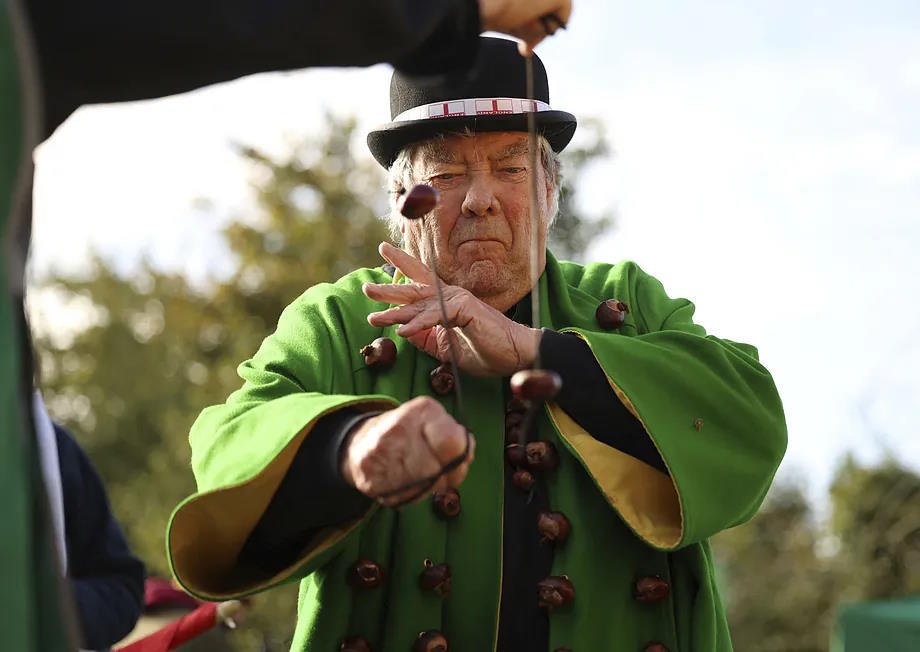Since time immemorial, British children celebrate the arrival of autumn by playing conkers. The game involves alternately striking two conkers, pierced in the center and suspended on a 20-centimeter string, with a knot at each end to prevent the fruit from escaping. The winner is the one who breaks the opponent's conker first.
The poet Robert Southey documented the existence of the popular children's game in his memoirs published in 1821. Originally, instead of the hard conkers, fragile snail shells tied to a string were used to clash (hence the word conker, possibly derived from the French conque). Although the term may also come from the English conquer, because that's what it's all about...
King Conker is precisely the grandiose title given to the winner of the World Conker Championship, held every year at the beginning of autumn in the town of Southwick. Over 200 adults participate in the unusual contest, amidst a delirious and festive atmosphere in the English countryside.
This year's male winner was David Jakins, an 82-year-old retired engineer, who had been unsuccessfully attempting since 1977. Jakins boasted in front of the cameras that the secret to breaking the opponent's conker is basically "a stroke of luck." But the runner-up, Alastair Johnson-Ferguson, noticed something strange in the last match and voiced his suspicion: "My conker practically disintegrated with a single blow, and that's something I hadn't seen happen before. I think there might have been foul play and I expressed my suspicion to the organizers."
The World Conker Championships (WCC) board launched a full investigation, and in a search carried out in the champion's green attire pockets, nothing less than a fake steel conker was found. Jakins deflected and claimed he never used it in the competition, that he carried it for "humorous purposes" to amuse children, and as a complement to his conker necklaces that are part of the competition's props.
The news of a cheating champion in the World Conkers Championship made headlines in the national press. Although the president of the organizing committee, John Burkett, expressed his astonishment in statements to Sky News: "Four judges were closely monitoring the match, and it seems that cheating was virtually impossible."
David Jakins, in any case, lost the final match to the female champion and Queen Conker, the debutant American Kelsey Banschbach, 34 years old and from Indianapolis. Meanwhile, in a brief statement, the organizers decided to distinguish the King Conker until proven otherwise, considering the recognition earned by Jakins during almost half a century in the competition.
The incident has brought attention to the alternative conker championship in Peckham, southeast London, where hardening the conkers is allowed using any known methods (baking them in the oven, soaking them in vinegar, or coating them with varnish) and unknown methods. "The steel conker would probably have won in Peckham," admitted organizer Chris Quinchley to The Guardian. "We are not purists with the game here; our rules are like Fight Club."
